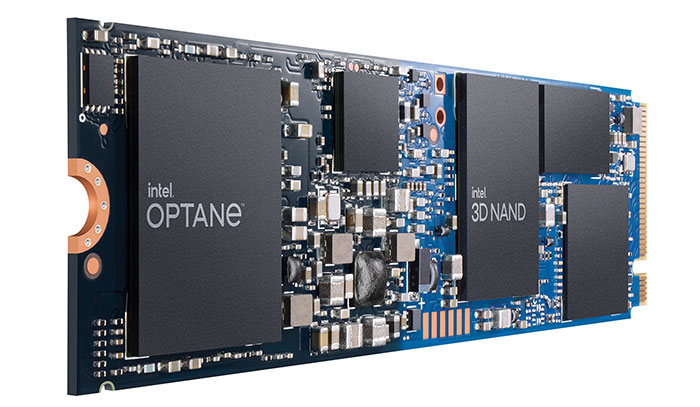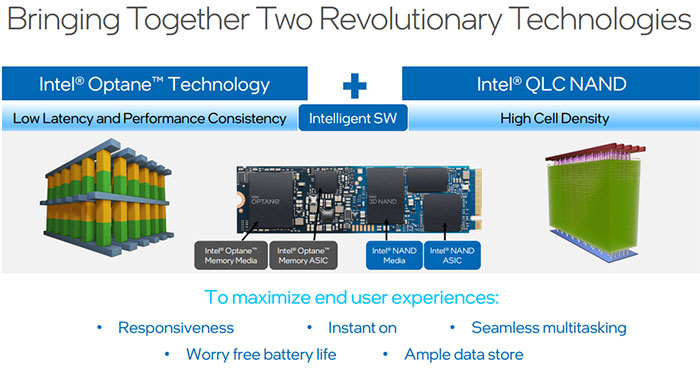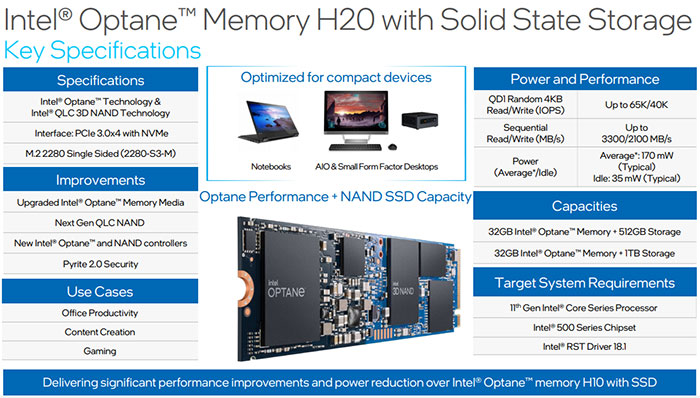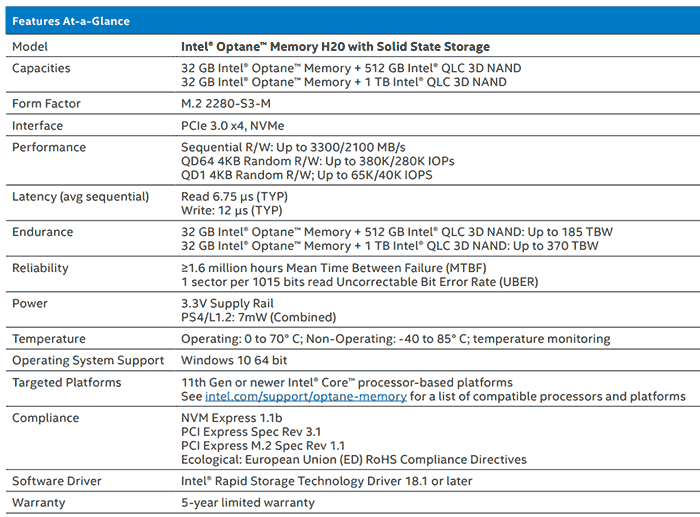Intel has announced a new storage product for client PCs. The new Intel Optane memory H20 products fuse Intel Optane technology and Intel QLC 3D flash. Compatible with new PC systems featuring 11th gen Intel Core processors, Intel Optane memory H20 comes in single sided M.2 2280 form factor sticks and in a choice of 0.5 and 1TB capacities. Product availability is scheduled to begin on 20th June.

According to Intel, the new Optane memory H20 sticks are ideal for gamers, media and content creators, everyday users, and professionals. The product is touted as delivering improved performance and responsiveness, with lower power consumption compared to the prior generation product – good for OS boot and general performance. In particular, Intel says that this solution "offers low latency and high performance with mixed random read/write speeds at low queue depths, and under demanding workloads".

Moving past the blurb and checking out the specs you will see that these are PCIe 3.0 NVMe storage devices that are compatible with systems packing 11th Gen Intel Core series processors and Intel 500 series chipsets. Not using PCIe 4.0 has the one plus of lower power consumption, particularly beneficial in portables. Users will require the Intel Rapid Storage Technology (Intel RST) driver, which intelligently uses the Optane cache for giving faster access to frequently accessed data.

Whether you buy the 0.5 or 1TB product you get 32GB of fast Optane memory cache. Key performance stats are the Random 4KB Read/Write (IOPS) of up to 65K/40K, Sequential Read/Write of up to 3,300/2,100MB/s, and typical power consumption of average: 170mW, idle: 35mW (Typical).

Intel is providing these 0.5 and 1TB products with a 5-year warranty for up to 185TBW and 370TBW, respectively. It touts a 1.6 million hours MTBF. Unfortunately at this time we don't have any pricing indications.






